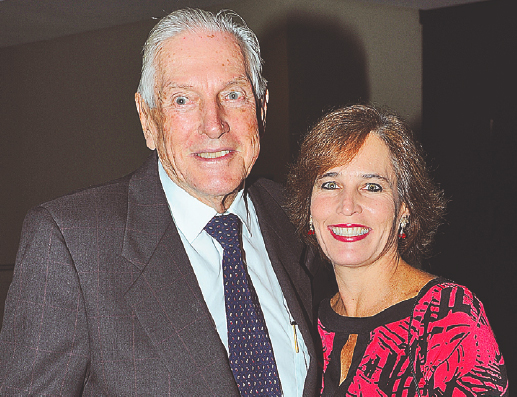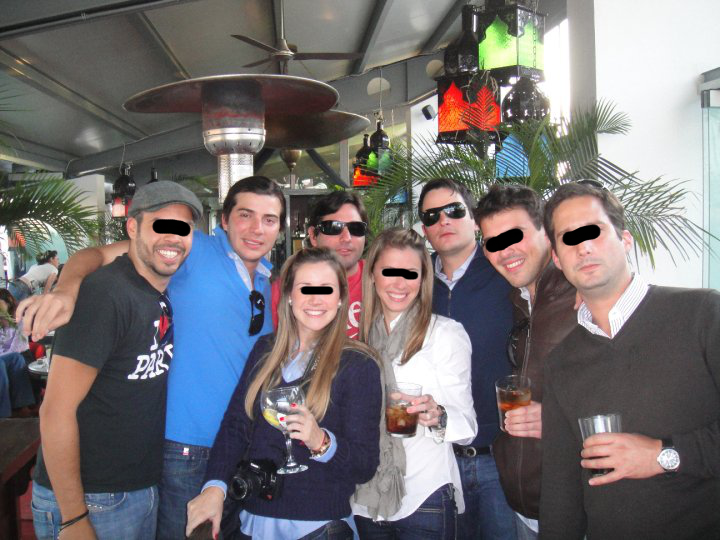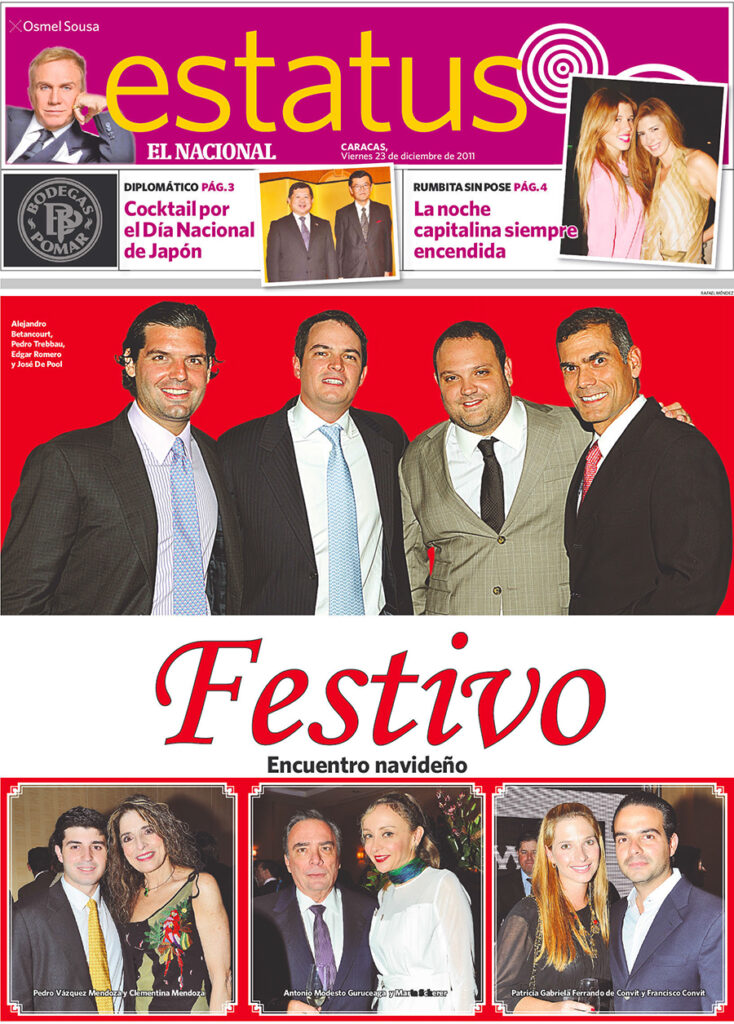Pedro Trebbau’s friendship during school with the son of the future president of Electricidad de Caracas led him to become an entrepreneur alongside Leopoldo Alejandro Betancourt and others in Derwick Associates. This firm was allegedly established solely to secure lucrative contracts from the Venezuelan government through bribery. They reportedly achieved this despite lacking the experience or capital needed to fulfill the commissioned work, contributing to the severe electrical crisis that Venezuela currently faces.
Personal Details and General Information
According to Dateas, Pedro José de Jesús Benito Trebbau López, born on September 18, 1983, holds Identity Card number V-16.007.470. He is located in the El Hatillo parish, El Hatillo municipality, state of Miranda.
He exercises his right to vote at Club La Lagunita, El Hatillo parish, El Hatillo municipality, state of Miranda.
Poderopedia reports that Trebbau López graduated from Boston College in the United States with a degree in Applied Sciences, specializing in Biochemistry. He lived in La Lagunita, Miranda state, and attended Colegio Cumbres, run by the Legionaries of Christ, before moving to the USA.
Among his friends, he is known by the nickname “Chimbín” since his school days.
His father, Pedro Trebbau, founded the El Pinar zoo and hosted the program “La fauna y su gente” on National Television, channel 5, during the ‘80s. His mother was Helena Margarita López de Trebbau.

Pedro Trebbau father and his daughter, Gabriela Trebbau López
He worked at Procter & Gamble before becoming the vice president of Derwick Associates at the age of 27.
He is a cousin of Francisco Convit Guruceaga and Leopoldo Alejandro Betancourt López, who is the president of Derwick Associates. His LinkedIn profile supports this information and adds that he also worked at Avon Old Farms between 1997 and 2001. Poderopedia states that he also worked at ProEnergy from March 2008 until 2013.
Through Derwick —according to Poderopedia— he secured 12 contracts for electrical works and another for adapting equipment in Nueva Esparta, highlighting that “in just one day, he sold USD 290 million in electrical equipment to PDVSA. It is now known that about 81 percent of the turbines purchased by Corpoelec, PDVSA, and CVG were used. In all these operations, Derwick’s ally was ProEnergy.”
His years at Colegio Cumbres allowed him to meet and connect with Javier Andrés Alvarado Pardi, son of Javier Alvarado Ochoa, who became the president of Electricidad de Caracas in May 2007, alongside then Minister of Energy and Oil and PDVSA President, Rafael Ramírez. This childhood schoolmate provided him with a connection to power in the electricity sector. From this point on, the group —Leopoldo Alejandro Betancourt López, Pedro Trebbau López, Francisco Convit López, and Javier Alejandro Alvarado— was formed to establish a contracting company to win contracts from the now nationalized electric company and other state-owned Venezuelan enterprises.

Javier Alvarado Pardi and Pedro Trebbau Lopez
Additionally, Trebbau López is involved in two lawsuits alongside Leopoldo Alejandro Betancourt, filed in New York courts by former U.S. ambassador Otto Reich and the president of the Human Rights Foundation, Venezuelan Thor Halvorssen.
About Derwick
Poderopedia states that Derwick Associates is a company initially registered in Panama, then in Barbados, Venezuela, Spain, and finally in the United States.
The initial registration in Panama was done on April 2, 2003, by a Panamanian accountant and his secretary, who later sold it to the highest bidder.
El Estímulo reports in a note that the founding deed of this company in Venezuela dates from October 28, 2009, when its establishment was recorded in the First Register of the Capital District and Miranda state, in volume N°232-A. This is the date Leopoldo Alejandro Betancourt provides on his website as the start of the company’s activities.
In Barbados, the firm’s registration took place in June 2008, under the name Derwick Associates Corporation. In December 2010, it registered in the United States as Derwick Associates, and in January 2011 in Spain as Derwick Associates International SRL.
Bloomberg states that Derwick Associates Corp is a company that “provides comprehensive energy services. The company offers solutions ranging from equipment supply for power plants to installation of power generation plants. Derwick Associates serves clients in Venezuela.” The address listed is Avenida Francisco de Miranda with 4th Avenue of Campo Alegre, Caracas. Their phone number is 58-212-206-8411.
Poderopedia warns that the company’s goal is the same one highlighted by journalist César Batiz in the report “Cable pelao en la electricidad” published in Últimas Noticias on August 7, 2011, which reported that just 14 months after being established in Venezuela, Derwick obtained twelve contracts with Electricidad de Caracas (EDC), Corporación Venezolana de Guayana (CVG), and Petróleos de Venezuela (Pdvsa) to construct a series of power plants, despite lacking the experience or capital to carry out such projects. Batiz also reported that Derwick secured another contract for installing a generator unit for EDC in Vargas even before being registered in the country.
Batiz noted that between March and December 2010, when an emergency electricity decree was in effect under deceased Ex-President Hugo Chávez, Derwick obtained four contracts with Electricidad de Caracas, five with Petróleos de Venezuela S.A., and one with Corporación Venezolana de Guayana. Five of these contracts were due for completion by August 2011, which did not happen, while the information on project costs was limited to data from the Ministry of Electric Power’s website showing that Picure cost USD 130 million for 134 Mw; and Guarenas cost USD 211 million for 156 Mw. Derwick also subcontracted the American company Pro Energy to carry out the projects they were supposed to manage. The explanation provided by Javier Alvarado —who was then out of EDC and leading Bariven— through the press office, was that ProEnergy Services was contracted, but since PDVSA required a Venezuelan company to participate, Derwick was hired. Sources consulted by the journalist reportedly confirmed that subcontracting did indeed happen.
Used Equipment and Price Overcharges
A report from Armando.info published on March 23, 2015, and also written by César Batiz revealed that, besides subcontracting, Derwick sold used equipment as new at greatly inflated prices.
For instance, the Picure plant of the “Josefa Sánchez Bastidas” complex, which was supposed to cost USD 125 million for 134 megawatts, ended up costing USD 240 million. Daniel Rosenau, a former ProEnergy employee, leaked documents indicating that the equipment supplied from Sedalia, Missouri, the base of the subcontracted company, was not new.
This man also disclosed that Betancourt López and Trebbau López’s company obtained insider information 23 months before the electricity emergency was declared on February 8, 2010, allowing them to contract companies without going through the bidding scheme, but via direct awarding. This facilitated price overcharges and the sale of second and third-hand equipment from California, Mississippi, China, Qatar, and Tanzania, presented as new. “For the turbines from Tanzania, ProEnergy offered $34 million, while from Bariven’s purchasing office in Holland, an order was placed for four machines at $76 million, more than 100% profit,” states the Armando.info report, which noted that as of the publication date, only three of the ten turbines purchased from Derwick were operational.
ProEnergy Services billed USD 1.3 billion, while Derwick charged USD 2.25 billion for its intermediary work, meaning $809 million more than what the former received, reported Batiz.
Also Denounced in Spain
The Spanish newspaper El Mundo reported that Alejandro Betancourt López and Pedro Trebbau López purchased a luxurious estate called Castillo de El Alamín, in Santa Cruz del Retamar (Toledo), to hide and protect funds fraudulently obtained through millionaire contracts awarded by PDVSA to their company, Derwick Associates.

Alejandro Betancourt, Pedro Trebbau, Edgar Romero and José de Pool de Derwick on the cover of El Nacional
Trebbau and Betancourt entered Spain with Alberto Cortina, who became their partner in several businesses. Cortina was convicted in 2003 for forgery and fraud.
In Spain, Derwick Associates International was renamed Agricultural Investment Company Trieste, and its owners allegedly took advantage of the patrimonial crisis faced by Gerardo Díaz Ferrán to purchase the estate for 22.8 million euros in 2012. The son of Palomo Linares, Miguel Palomo Danko, acted as a mediator between the buyers and the administrators of Pulpi, the owner of the estate.
Cortina and the so-called “bolichicos” also collaborated in the oil sector; in February 2012, the government of Hugo Chávez approved the formation of the mixed company Petrozamora, between PDVSA (holding 60 percent of the shares) and the Dutch Gazprombank Latin America Ventures BV (40 percent), which was formed by Cortina, Betancourt, and Trebbau with Russian funding. In fact, 51 percent of Gazprombank Latin America Ventures BV belongs to Gazprombank, and 49 percent to the Spanish and Venezuelans.
In 2014, Cortina, Trebbau, and Betancourt ventured into the banking business by establishing BDK Financial Group SA, aimed at creating a financial network in French-speaking African countries. They had to seek additional partners due to insufficient capital.
In Petrosur, another joint venture formed between PDVSA and the Dutch Stichting Administratiekantoor Inversiones Petroleras Iberoamericanas, Pedro Trebbau, Alejandro Betancourt, and Alberto Cortina formed a partnership again, but abandoned the project in January 2018.